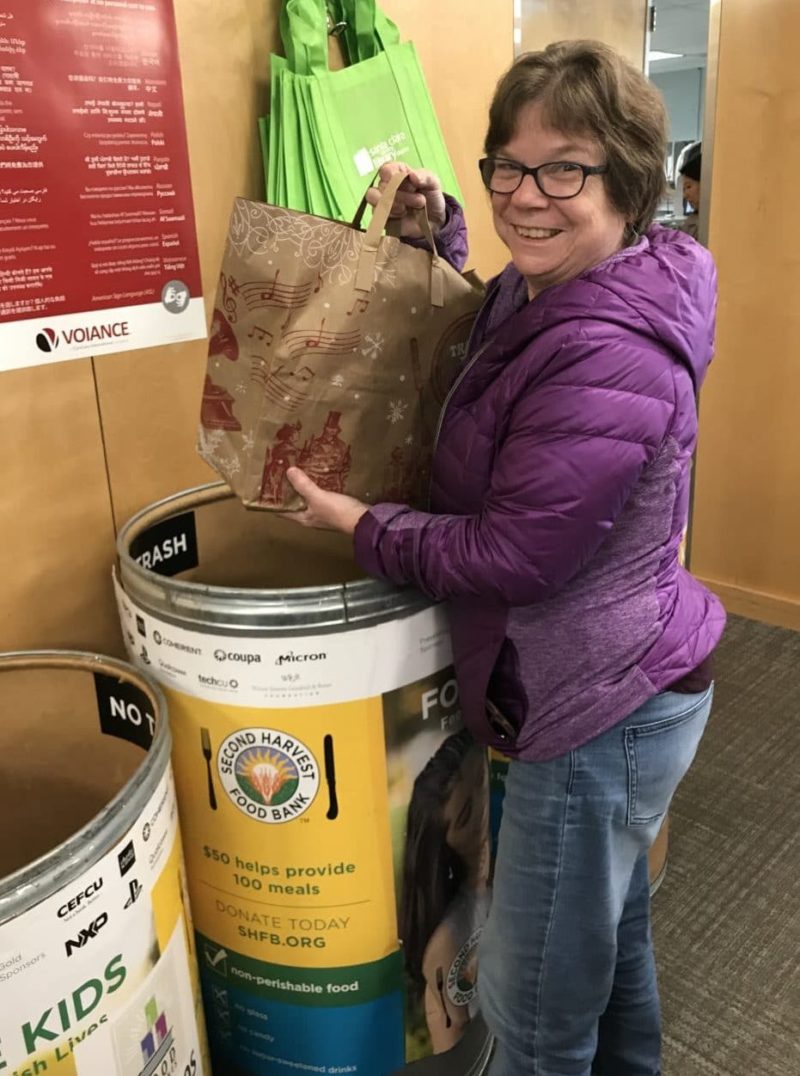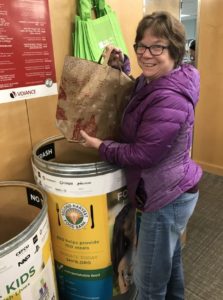With the recent Food for Fines program at Santa Clara County Library District (SCCLD), borrowers with fines or fees were able to make food donations to erase their fines. A single donation offered amnesty for up to $100 in fines and fees.
In 2018, we celebrated SCCLD’s Food for Fines program launch. Now they’ve collected the equivalent of 60,000 meals over the last two years. We talked to Director of Communications and Marketing Diane Roche to reflect. How can two community-focused organizations, Second Harvest and SCCLD, work together to serve Silicon Valley?
“Food banks and libraries share a commitment to making important resources accessible to all,” Diane explains. “Fines and fees over $20 can block community members from important library resources. For some, it’s embarrassing to owe money. For others, it creates a hardship if you have to make the choice between paying a fine, buying gas or putting food on the table. Food for Fines is a natural partnership between the library and Second Harvest to remove barriers.”
Even when free resources at the library or nutritious groceries from Second Harvest are available, clients face challenges. They must find transportation, navigate work schedules and overcome the difficulty of asking for help.
With the high cost of living in Silicon Valley, many families have two working parents. New this year, all eight Santa Clara County libraries are open seven days a week. When families can’t make it in, residents can learn languages or receive help with coursework for free through the online library. Here at Second Harvest, we’re expanding distribution times and opening new sites at the front doors of affordable and supportive housing complexes.
Food for Fines promotes the ultimate values of both Second Harvest and the library – that everyone deserves access to nutritious food and an open forum promoting knowledge, ideas and cultural enrichment. Diane reminds us that Food for Fines “is about removing barriers and making everyone feel welcome. [Food donors] are also doing good for someone else. It’s truly a win-win for the community.”

